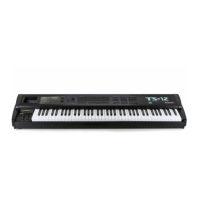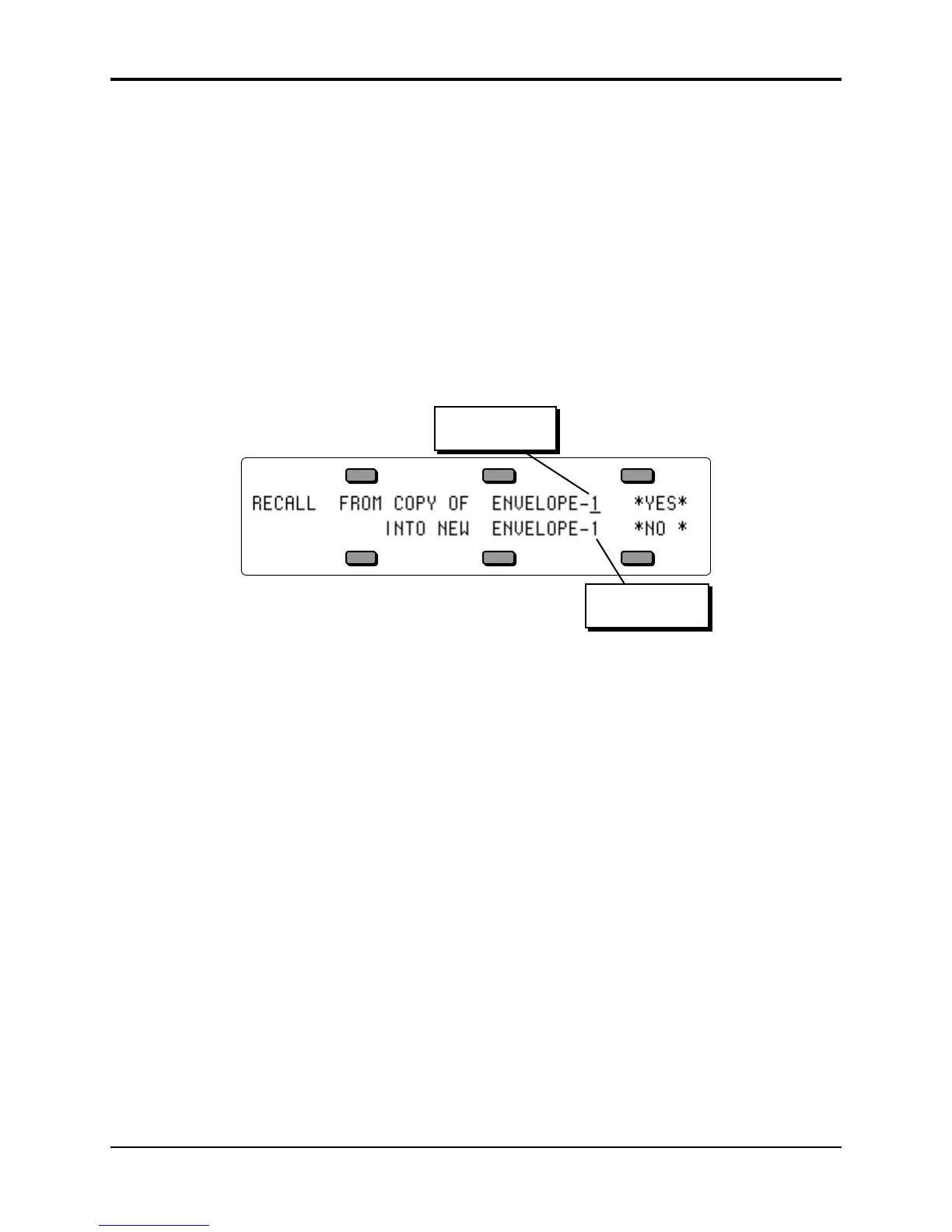TS-12 Musician’s Manual Section 8 — Understanding Programs
19
buffer is loaded with the currently selected primary program before the recall is completed. The
compare buffer is always selected after a recall.
If Group Edit is active when pages of voice parameters are recalled, then the recall will affect all
of the voices in the group. The data being recalled will be written into all of the grouped voices
in the compare buffer at the same time. For example, you could make a copy of an envelope page
from one voice and then recall it into a group of voices in one step. Group Edit has no effect
when recalling effects, complete voices, pitch tables, or complete programs.
Special Recall Functions
There are several exceptions to the normal pattern of operation in the RECALL function. The first
exceptions occur with the Envelope and Filter contexts. When the copy context is set to any of
the Filter or Envelope settings, pressing RECALL will display an additional page which allows
you to select the source and destination pages for the parameter transfer. This allows you to copy
information between different envelopes and filters.
Select Source
Envelope Number
Select Destination
Envelope Number
The sample screen shown above illustrates the RECALL sub-page for the ENVELOPE context.
The Source Envelope number controls which envelope in the copy buffer will be used by the
recall, and the Destination Envelope number determines which envelope in the compare buffer
will be replaced with the new data being recalled. The default settings are always the same
number for source and destination. If you want to copy across from one envelope to another, you
must set the source and destination envelope numbers accordingly. The RECALL sub-page for
the FILTER context is similar in appearance and function.
Remember that the copy buffer always contains copies of each of the three envelopes and two
filters, regardless of whether you last used an envelope, filter, voice, or program copy function.
Another exception occurs in the PROGRAM context. Pressing RECALL from this context will
take you directly to the Write page. The compare buffer is loaded with the same information as
the copy buffer whenever you recall an entire program, and you are ready to save the program in
a new location.
The system will alert you if you try to recall into a context different than the last copy action that
was performed. This prevents you from mistakenly recalling a fragmented voice, program or
pitch-table.

